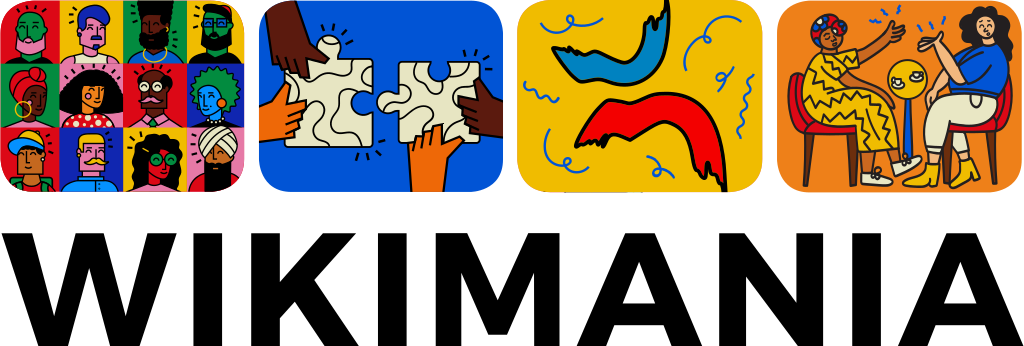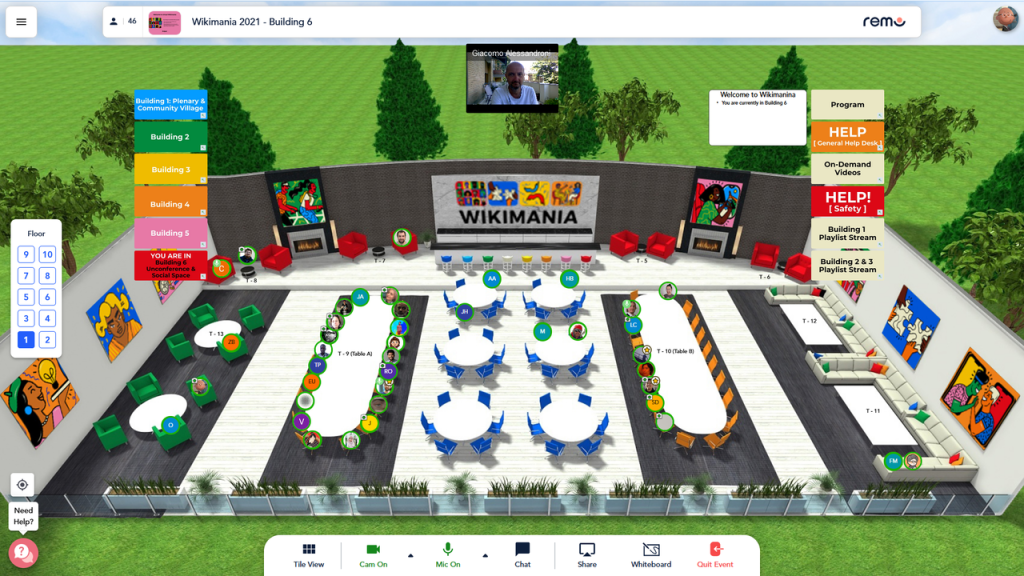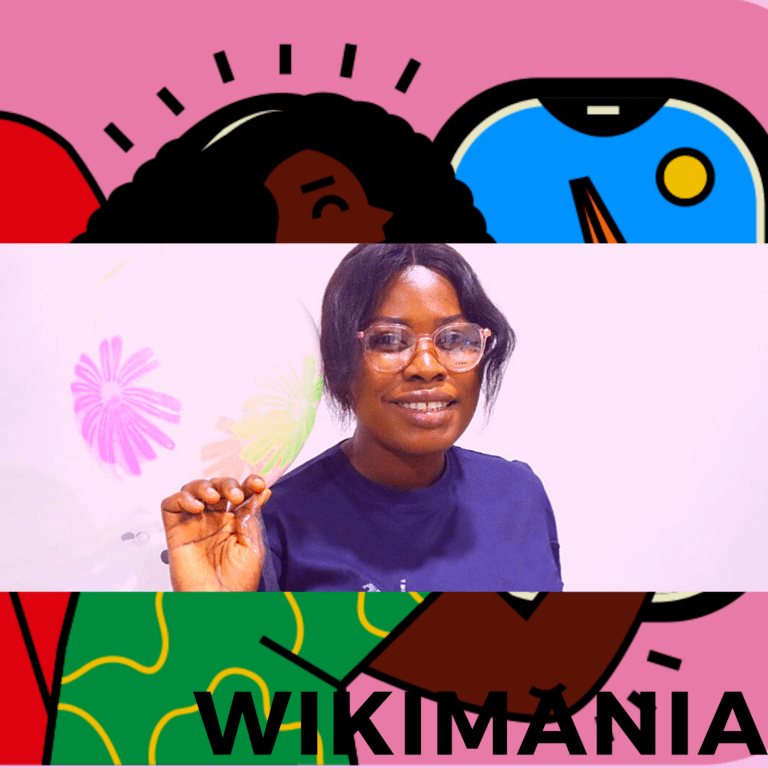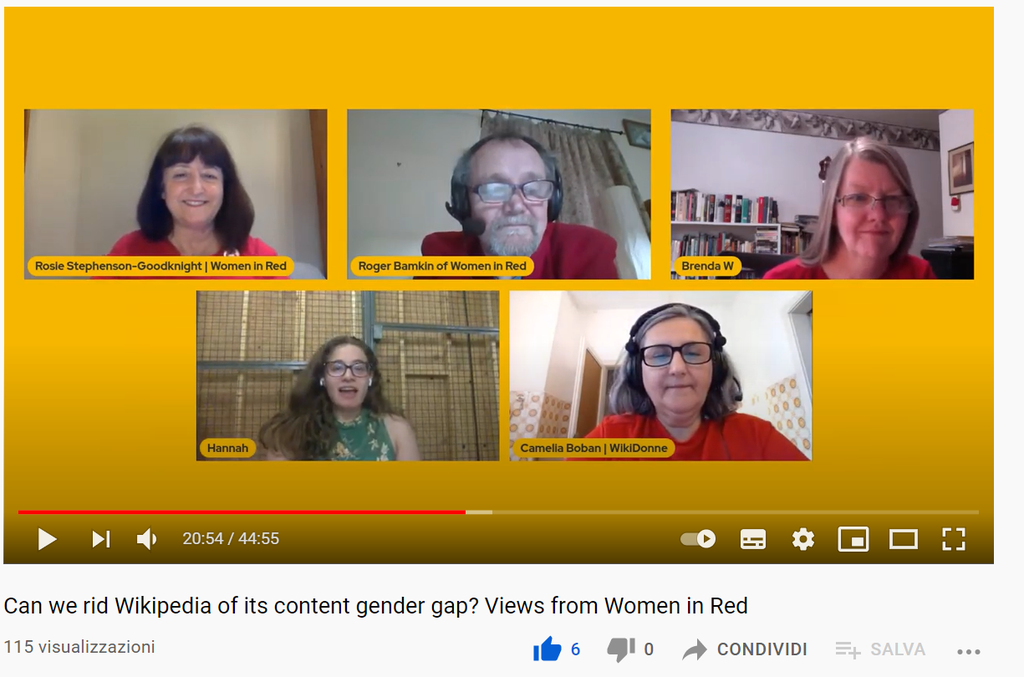
Think back to August 2021, when over 1700 of you across the movement brought Wikimania 2021 to life. The event organisers wanted to say thank you for making our first virtual Wikimania also the biggest one to date.
After the event, the organising team conducted an in-depth evaluation and asked you, the attendees, to share your thoughts. We especially wanted to know: how accessible and inclusive was Wikimania 2021? What did you most like about the event? What would you have changed? And how did newcomers feel? Below are some of the top findings. You can read a summary of the evaluation below or the full report on wiki.
Successes
More participants from all over the world
Wikimania 2021 saw more participants from all over the world: Africa (23%), North America (18.5%), Latin America (6.4%), Asia (23%), Europe (26%), and Oceania (2%). This is more geographically diverse than any in-person event could hope for, due to travel logistics. For example, at the 2019 Wikimania in Sweden, 68% of participants were from Europe. We also welcomed a higher proportion of newcomers: 62% of attendees were first-time Wikimania newcomers and 34% returnees.
Greatest language accessibility (than all previous Wikimanias)
Participants felt positively about virtual language accessibility made possible at this year’s Wikimania: 91% that used the live interpretation service said they were happy that they could listen to presentations in their language of choice (Arabic, Chinese, English, French, German, Russian, and Spanish).
Participants made good use of YouTube, which provided a low-bandwidth, accessible, and mobile-friendly way to watch Wikimania content live and after the event. In the first two months after Wikimania, the YouTube recordings were viewed over 23,000 times, with an average of 140 views per video. The most watched video so far – over 900 views at time of this writing – is the “Wikimedian of the Year Celebration”: make sure to celebrate the achievements of 7 exceptional Wikimedians, watch the musical performances, and catch the funny technical glitches.
Unique community engagement – the scholarship program
The scholarship program allowed for scholarships to be distributed to over 500 attendees. We worked with 16 affiliates to distribute the funds covering expenses ranging from small hardware and data packages to child care. While most affiliates felt that the program helped them connect with their communities, some faced challenges with the distribution. We plan to keep these challenges in mind when designing Wikimania 2022.
Unique community engagement – a sense of belonging
Perhaps most importantly, Wikimania 2021 succeeded in creating a sense of belonging for attendees, especially for newcomers: 77% of survey respondents agreed that the event helped them feel like they belonged, including 81% of newcomers surveyed. In a year when we have had fewer opportunities to connect in real time than ever before, creating belonging in the Wikimedia movement takes on a special meaning … and a lot of effort.
Some areas for improvement
This was the first time we organized a conference of this style and size fully online, and obviously there are many improvements to make, as we get ready for Wikimania 2022.
A more engaging virtual experience
We noticed a relatively high dropoff rate for participants: 37% of the 1740 attendees that joined the event on Remo (our conference venue) stayed on the platform for less than one hour. This can be partially explained as an expected dropoff rate for free, online events during a pandemic, although some participants did note difficulty navigating the conference platform or the amount of data it consumed as obstacles. Some dropoff may have been offset by attendees choosing to enjoy Wikimania on YouTube instead.
The streaming platform chosen for speakers was StreamYard. While 74% of speakers felt the event allowed them to share their work, 48% felt they were unable to meaningfully engage with their audiences, because the speakers were somewhere different than the participants. As the event went on though, interactions with speakers improved – with rapid response and coordination on Telegram and creative uses of Etherpads.
It is hard to design well for traditional in-person social interactions at a virtual Wikimania: survey respondents felt that the unstructured, networking spaces of Wikimania 2021 – the Unconference and the Community Village – did not function completely as intended. While attendees appreciated the opportunity to network, some felt it was unclear how to reserve and best use the space.
Getting ready for Wikimania 2022
If you’re feeling nostalgic already, you can watch back all of the great content, including the session that brought out the performers in all of us: the Wikimania 2021 Song and lyrics (See Youtube or Wiki). See if you can spot yourself and your friends!
And start getting excited for Wikimania 2022, discussions are already under way. We plan on sharing initial communication and organizer recruitment next week. Now is the time to make a difference – let’s create Wikimania 2022 together.

Can you help us translate this article?
In order for this article to reach as many people as possible we would like your help. Can you translate this article to get the message out?
Start translation


